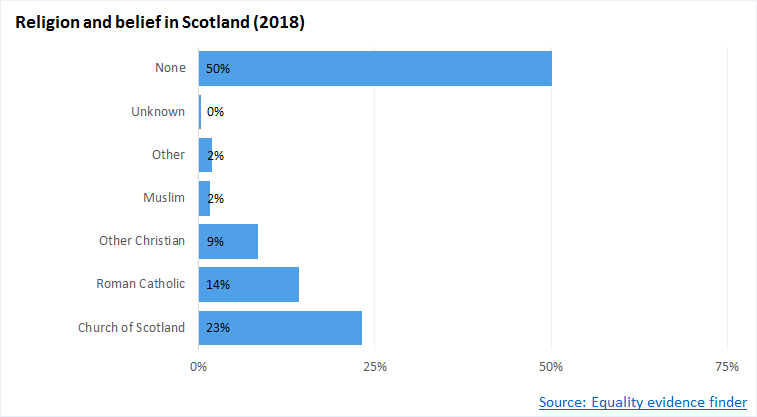Religion refers to people who belong to a major world religion such as Christianity, Judaism or Islam, and also people who belong to smaller religions or denominations, such as Rastafarianism or Methodism.
Religion also includes people who do not identify with any particular religion, and also includes philosophical belief, such as atheism. Belief refers to any religious or philosophical belief that affects a person’s life choices or the way they live.
Equality Act 2010
Othering
"To view or treat (a person or group of people) as intrinsically different from and alien to oneself."
Datasets or terminology which combine a diverse group of people under a heading like "other" can be othering. We lose our understanding of the diversity of the group. It can make people feel excluded, and contribute to them being marginalised.
Several of these datasets use 'other'. We have retained this term to accurately reflect the source data. We are reviewing our own data collection to avoid this term in future.
Context
Half of Scottish adults belong to no religion

Physical activity and sport
There isn't enough national data on religion and belief and sport or physical activity
There is very limited national data on physical activity, sport and religion and belief. The limited data we have suggests Muslims and Roman Catholics may be less likely to be active (Active Scotland Outcomes Indicator Equality Analysis). We can still learn from the qualitative research. See the equality and sport research for more details.
Participation in our key programmes
Club members and high performance athletes were more likely to report no religion.
See the equality and sport research for more information on our characteristics and physical activity.

